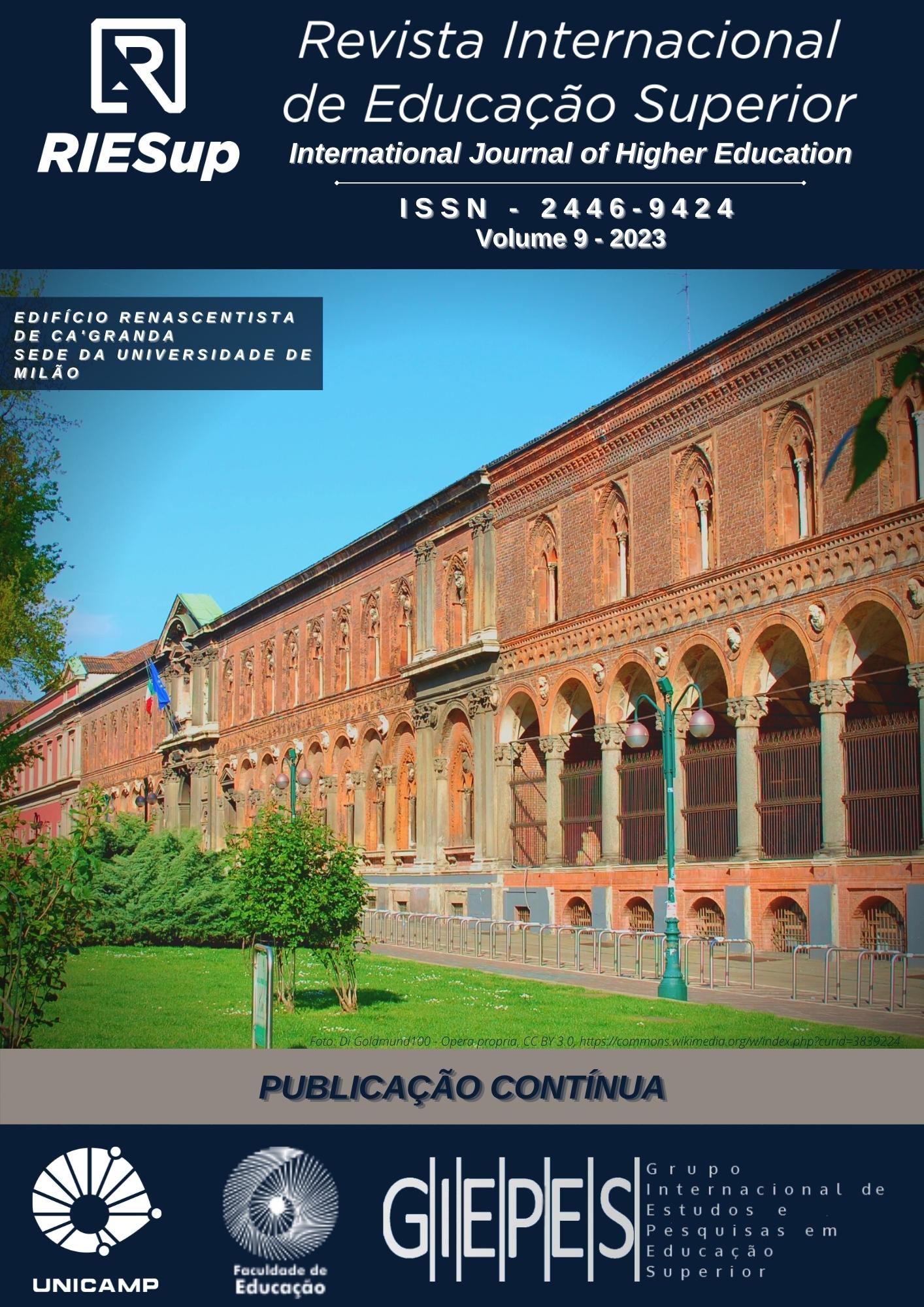Abstract
The use of business simulators in management education is a strategy present in Higher Education Institutions (HEIs). The scientific literature points out advantages of this practice, but one aspect that can still be explored is the process of adopting the simulators. The aim of this study is to bring up the experience of implementing and using business simulators in an undergraduate course at a HEI in the State of Santa Catarina. An experience report is presented highlighting the need for attention to pedagogical details - such as defining clear learning objectives, and operational procedures, involving the preparation and application of the classes. Also highlighted are the results of a survey carried out with business students who participated in the application of the simulator, demonstrating a positive perception of the game's contributions to professional training, especially for allowing the integration of content covered during the course.
References
ARNAB, Sylverter et al. A. Mapping learning and game mechanics. British Journal of Educational Technology, v. 46, p. 391-411, 2015.
BUTZKE, Marco A.; ALBERTON, Anete. A. Estilos de aprendizagem e jogos de empresa: a percepção discente sobre estratégia de ensino e ambiente de aprendizagem. REGE - Revista de Gestão, v. 24, n. 1, p. 72-84, 2017.
CAVALCANTE, Bruna. L. L.; LIMA, Uirassú. T. S. de. Relato de experiência de uma estudante de Enfermagem em um consultório especializado em tratamento de feridas. Journal of Nursing Health, v. 2, n. 1, p. 94-103, 2012.
CONNOLLY, Thomas M. et al. A systematic literature review of empirical evidence on computer games and serious games. Computers & Education, v. 59, n. 2, p. 661-686, 2012.
CORTI, Kevin. Games-based Learning; a serious business application. PIXELearning Limited, 2006. Disponível em: www.pixelearning.com/docs/games_basedlearning_pixelearning.pdf. Acesso em: 16 fev. 2019.
COSTIN, Yvonne; O'BRIEN, Michael. P; SLATTERY, Darina. M. Using Simulation to Develop Entrepreneurial Skills and Mind-Set: An Exploratory Case Study. International Journal of Teaching and Learning in Higher Education, v. 30, n. 1, p. 136-145, 2018.
CRESWELL, John. W. Projeto de pesquisa: métodos qualitativos, quantitativos e mistos. 2. ed. Porto Alegre: Artmed, 2007.
DOYLE, Declan.; BROWN, F. William. Using a business simulation to teach applied skills – the benefits and the challenges of using student teams from multiple countries. Journal of European Industrial Training, v. 24 n. 6, p. 330-336, 2000.
FREITAS, Sara de. Learning in Immersive Worlds: A review of game-based learning. Joint Information Systems Committee, 2006. Disponível em:
http://researchrepository.murdoch.edu.au/id/eprint/35774/1/gamingreport_v3.pdf Acesso em: 16 fev. 2019.
FU, Kun; HAINEY, Thomas; BAXTER, Gavin. UA systematic literature review to identify empirical evidence on the use of computer games in business education and training. 10th European Conference on Games Based Learning, October 2016.
GARRIS, Rosemary.; AHLERS, Robert; DRISKEL, James. E. Games, motivation, and learning: A research and practice model. Simulation & Gaming, v. 33, n. 4, p. 441-467, 2002.
GEITHNER, Silke; MENZEL, Daniela. Effectiveness of Learning Through Experience and Reflection in a Project Management Simulation. Simulation & Gaming, v. 47, n. 2, p. 228–256, 2016.
GRECO, Marco; BALDISSIN, Nicola; NONINO, Fabio. An exploratory taxonomy of business games. Simulation & Gaming, v. 44, n. 5, p. 645-682, 2013.
LEWIS, Michael. A.; MAYLOR, Harvey. R. Game playing and operations management education. International Journal of Production Economics, v. 105, n. 1, p. 134-149, 2007.
MILES, Matthew. B.; HUBERMAN, Michael. A. Qualitative data analysis: an expanded sourcebook. 2 ed. London: Sage, 1994.
PALMUNEN, Lauri-Matti et al. Formation of Novice Business Students’ Mental Models Through Simulation Gaming. Simulation & Gaming, v. 44, n. 6, p. 846–868, 2013.
PIVEC, Maja; DZIABENKO, Olga; SCHINNERL, Irmgard. Aspects of Game-Based Learning. I-KNOW 03: The Third International Conference on Knowledge Management, Graz, Austria, July, 2003.
PRENSKY, Marc. Digital Game-based Learning. ACM Computers in Entertainment, v. 1, n. 1, p. 1-4, 2003.
RICHARDSON, Roberto J. Pesquisa Social: métodos e técnicas. 3 ed. São Paulo: Atlas, 1999.
SCHMELLER, Rebecca. In Strategy Simulations, Data Analysis Matters Most (More Than Number of Log Ins and More Than Time Spent Logged In). Simulation & Gaming, v. 50, n. 1, p. 62–75, 2019
VLACHOPOULOS, Dimitrios; MAKRI, Agoritsa. The effect of games and simulations on higher education: a systematic literature review. International Journal of Educational Technology in Higher Education, v. 14, n. 22, 2017.

This work is licensed under a Creative Commons Attribution 4.0 International License.
Copyright (c) 2022 Revista Internacional de Educação Superior


